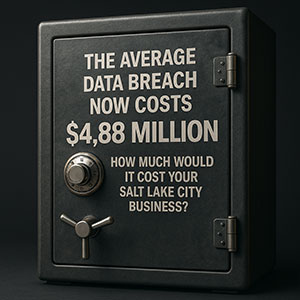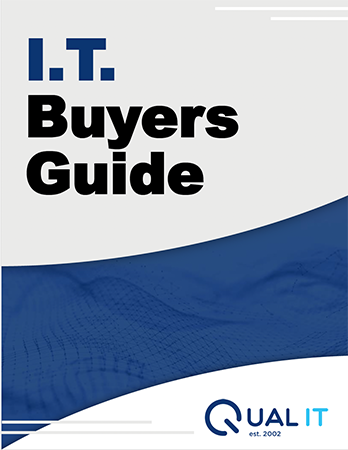 Medical practices in Salt Lake City are prime targets for cyberattacks
Medical practices in Salt Lake City are prime targets for cyberattacks
You don’t need to run a hospital or be part of a large healthcare system to get hit by a cyberattack. In fact, private practices and specialty clinics throughout Salt Lake City are now some of the most vulnerable targets in the country. Why? Because you have exactly what cybercriminals want—sensitive patient data—and many practices still rely on outdated IT systems or patchwork security.
And while a larger health system might have legal and financial buffers, most small to mid-sized practices here in Utah simply don’t.
According to IBM’s 2024 Cost of a Data Breach Report, the average cost of a data breach is $4.88 million. That number reflects much more than stolen files—it includes HIPAA violations, patient attrition, system downtime, ransomware payments, audit fallout, and reputation loss.
Hard to breathe after reading that? You're not alone.
But there’s good news—some Salt Lake City practices are staying ahead of the threat, and they’re doing it with the help of a smarter, proactive approach to IT support.
The Technology That’s Quietly Saving Clinics Like Yours
It’s called Endpoint Detection and Response (EDR), and while it sounds like another acronym to memorize, all you need to know is this:
EDR is like a security guard who never clocks out.
Where traditional antivirus tools wait to react, EDR monitors every login, every file, every digital heartbeat of your network—live and in real time. If it detects anything out of the ordinary (a remote login from another state, a script behaving like ransomware, or a fake update quietly encrypting your files), it stops it cold before the damage spreads.
This is the type of protection most medical practices in Salt Lake City didn’t know they needed—until now.
Why Medical IT in Salt Lake City Demands More Than Basic Antivirus
Today’s cybercriminals don’t just brute-force their way into systems. They log in through the front door, disguised as your billing manager or clinical director. They hide malware inside PDF faxes or spoof your EMR provider’s domain to trick front desk staff.
And they know exactly how to exploit downtime.
That’s why more and more local practices are looking beyond basic IT services. They’re seeking managed IT support in Salt Lake City that includes healthcare-grade security tools like EDR—because the cost of not having them is too high.
And here’s something most providers haven’t been told: Many cyber insurance carriers are now requiring EDR as a condition of coverage. Without it, your claim could be denied. It’s like trying to bill for an encounter without documentation—you’re left holding the bag.
Is Your Practice Actually Protected?
Here’s what we know: if you’re not sure, then you probably aren’t.
We’ve worked with clinics that thought they had "protection"—until we ran a simple network assessment. Misconfigured firewalls. No backup testing. Gaps in HIPAA compliance. No endpoint protection. It’s more common than you think.
At Qual IT, we specialize in managed IT services for Salt Lake City medical practices. We understand HIPAA, we speak EMR, and we offer healthcare-specific IT support that takes the burden off your staff.
We’ll review your entire system, highlight vulnerabilities, and recommend exactly what you need (and what you don’t) to protect your data, your license, and your peace of mind.
What’s Next?
You became a doctor to care for patients—not to monitor networks or stress over ransomware alerts. If your current IT setup couldn’t handle a $4.88 million disaster, let’s fix that now—not after the fact.
Click below to book your free network assessment. No jargon. No pressure. Just a healthcare IT partner who’s got your back—so you can focus on what matters most.
Click here to book your free network assessment



